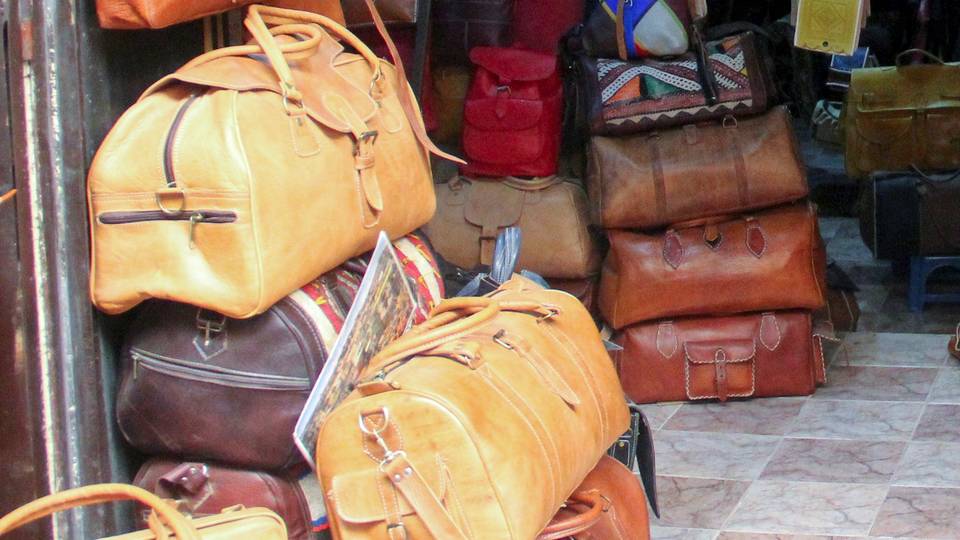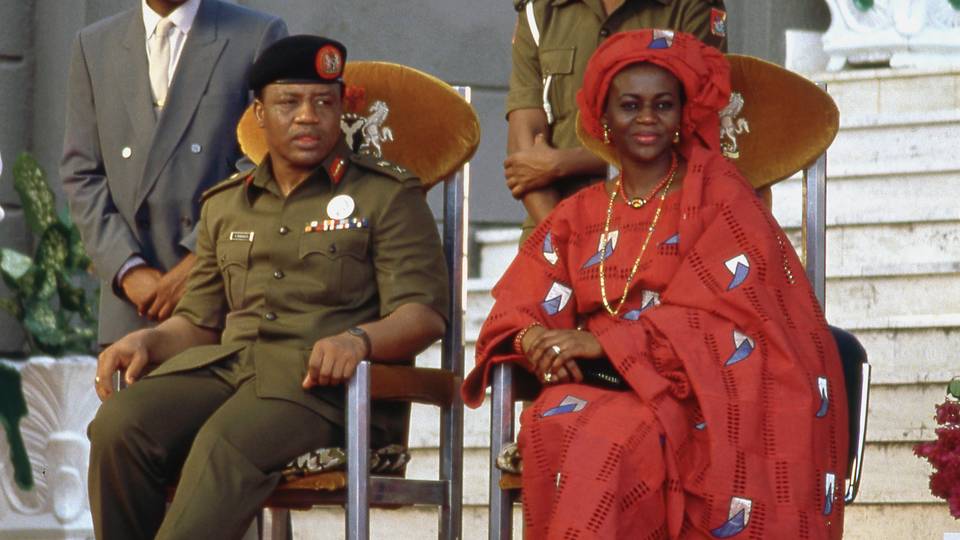Sport
Dollar
38,2552
0.34 %Euro
43,8333
0.15 %Gram Gold
4.076,2000
0.31 %Quarter Gold
6.772,5700
0.78 %Silver
39,9100
0.36 %Nigerian leather, globally renowned for its quality, seeks to come into its own after spending decades under the shadow of European brands that import raw materials from the country and benefit disproportionately from the sale of finished products.

By Abdulwasiu Hassan
A seemingly innocuous "Did you know?" can be the starting point in a journey of discovery that scrapes the veneer off long-held perceptions.
Such as learning that your branded "luxurious Italian leather" handbag has more Nigeria in it than Italy.
Or, for that matter, being told that several famous Italian and Spanish brands source at least part of their leather from tanneries in northern Nigeria.
Leather from Nigeria, especially red Sokoto goatskin, is acknowledged globally for its superior quality.
Driver of employment, foreign exchange
Although Nigeria has fewer tanneries now than a decade ago, leather continues to be one of the drivers of employment and foreign exchange in Africa's most populous nation.
According to the Nigerian Bureau of Statistics, about 16.6 million agricultural households raise approximately 124 million goats and sheep annually, translating into ready hide availability for the leather industry.
Tanneries in northern Nigeria, especially in the commercial hub of Kano, rely almost entirely on small-scale farmers to supply raw material that is processed into leather for export and domestic consumption.
"The leather industry holds immense promise for economic growth and diversification," Dr Jerry Tagang, lecturer at the Nigerian Institute of Leather and Science Technology (NILEST) in Zaria, tells TRT Afrika.
Ninety percent of Nigerian leather is exported
"The country's abundant raw materials, skilled artisans, and supportive government policies (such as the National Leather and Leather Products Policy) create a fertile ground for the sector to grow."
While data from the Nigerian Exports Promotion Council suggests that 90% of the leather produced in Nigeria is exported, Dr Tagang says domestic demand alone is significant enough to sustain the livelihood of thousands of Nigerians.
"Nigeria's leather and leather products industry currently employs over 750,000 workers, with about 500,000 of them being engaged in the finished goods sector," says Dr Tagang.
"The industry can potentially create more jobs for Nigeria's youth and women, provided the leather value chain is properly explored."
Compete at global level
Many of those in the domestic sector work for Winston Leather, which has diversified into making leather products from merely exporting leather.
In a video posted on the company's TitTok account, CEO Winston Udeagha says the company's leather products are of the same quality as top European brands, albeit cheaper.
"We are part of the 'made-in-Africa' brand equity that can compete at the global level," he tells TRT Afrika.
“So, if you see a bag made in Nigeria now and you see a bag you want to buy from any other country where you go shopping, know that they are on par in terms of quality."
Export-focused trade
The Nigerian Export Promotion Council website states that 71% of leather exports from the country are to Italy and Spain.
Premium goatskin leather mainly goes to Italy, accounting for 68% of the trade in this category. Spain imports 21% of Nigeria's goatskin leather and China sources around 4%.
India takes the lion's share of Nigerian sheep and lamb leather with 36%, followed by China with 22%.
Ali Muhammad Tilashi has been engaged in the trade for about a decade, sending container loads of leather to Italy, Spain, China and India. "Whatever you produce that is of good quality, they will buy," he says.
Value addition
Even for a small player in the business, Tilashi's export output is about 10 container loads of cargo at a time.
"It is estimated that up to 544 million square feet of light leather (worth US $272 million) was exported from Nigeria last year," Dr Tagang tells TRT Afrika.
Even with raw materials like leather, a country tends to lose revenue as those processing these into finished products reap the highest benefit.
This is why many African governments have been focusing on adding value to their commodities before shipping them abroad.
'Long way to go'
In Nigeria, export statistics show that local manufacturers like Winston Leather still have a long way to go before carving out a larger share of the business compared to foreign brands importing unprocessed leather.
Those being trained by NILEST can also do with publicity for their produce so that they stand a fair chance of earning a larger share of the global leather products market.
NILEST is helping build capacity through training in the technical aspects of producing finished leather goods. The institute is also at the forefront of research to enhance leather processing in the country.
"NILEST runs conventional training programmes in leather technology, footwear technology and related fields to meet the growing demand for qualified practitioners in the industry," Dr Tagang tells TRT Afrika.
➤Click here to follow our WhatsApp channel for more stories.
Comments
No comments Yet




















Comment